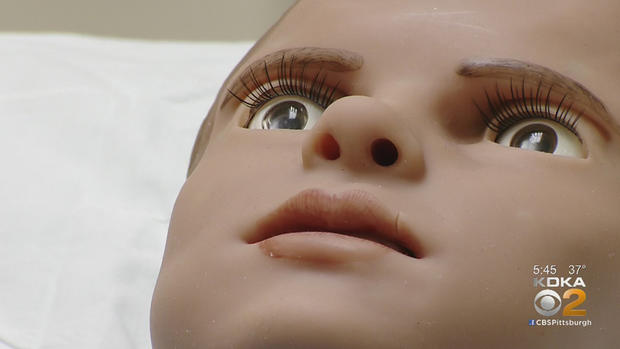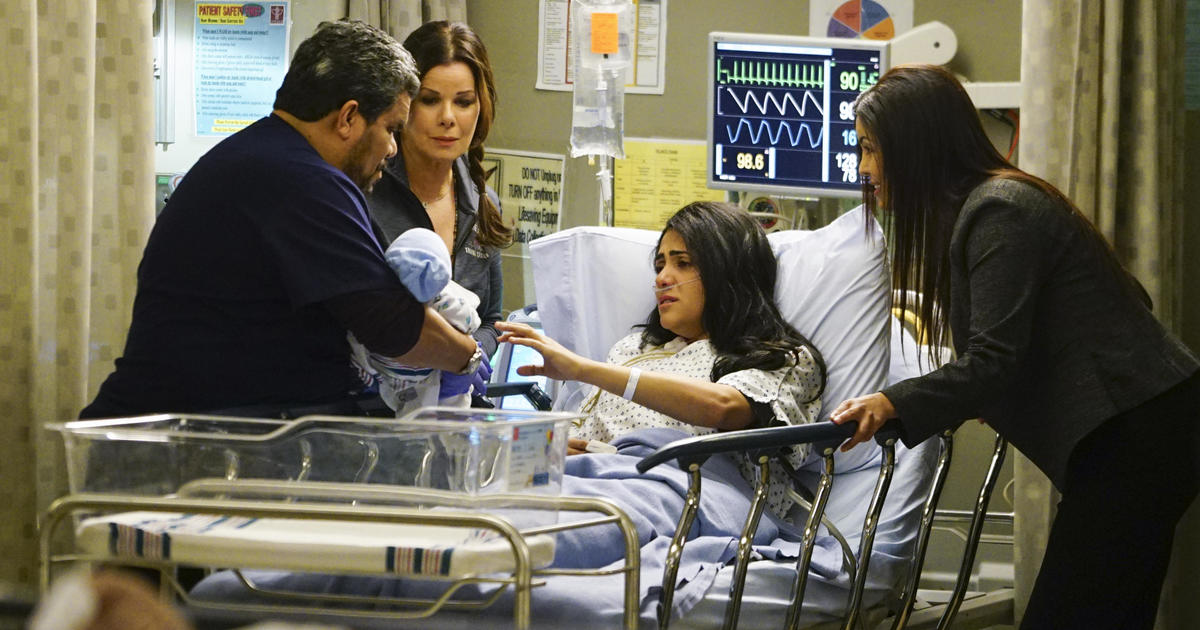To Help Save Lives, Medical Professionals Use Life-Like Patient Simulator That Bleeds, Cries And Speaks
PITTSBURGH (KDKA) -- Meet "Hal 32-01": the world's most advanced pretend pediatric patient.
His whole goal is to save your child's life in an emergency by letting doctors and other health care professionals practice on him first.
When it comes to medical simulators, Hal has all the bells and whistles at the cost of $50,000.
The simulator can react, speak, cry, and bleed — features pediatric simulators before Hal did not have.
"He has interactive eyes and facial features, so you can see he's blinking. His pupils will react to light. So he's making a different facial feature right now, looking like he's in some pain," said Nicole Cooper of the Allegheny Health Network Star Center.
When you practice CPR on Hal, you can put a breathing tube in him and check oxygen levels with a finger monitor.
You can also place an IV in him, stick a needle in his chest for a collapsed lung and even check a fingerstick blood sugar and get a result.
He has reservoirs for his various fluids to make the experience authentic.
Over the past year, local emergency room staff, EMTs, students, doctors, and nurses have all used Hal to learn and be better prepared.
Hal's even "made rounds" to local pediatrician's offices.
"The pediatric office isn't always a place where they get a very intense situation," said Cooper. "So we put them in situations where they had to locate their emergency equipment, maybe place defibrillator pads on the patient to check his heart rhythm, call 911, access their emergency supplies to make sure they were prepared if something really does happen."
"He starts talking, and everyone was freaking out, just for a moment," said Pediatric Alliance nurse Nadine Baudine.
"It was scary at first. just because you don't expect. His eyes were blinking, looking at you. The blue around the lips. You don't expect it, because he looks like a doll," said Baudine.
"You were able to tell whether or not you were doing it correctly. It was a bigger learning experience than the ones that don't have any kind of response," said Pediatric Alliance medical assistant Deb Perry.
The next step is to study whether practicing on Hal makes a real-life difference in outcomes for patients.




